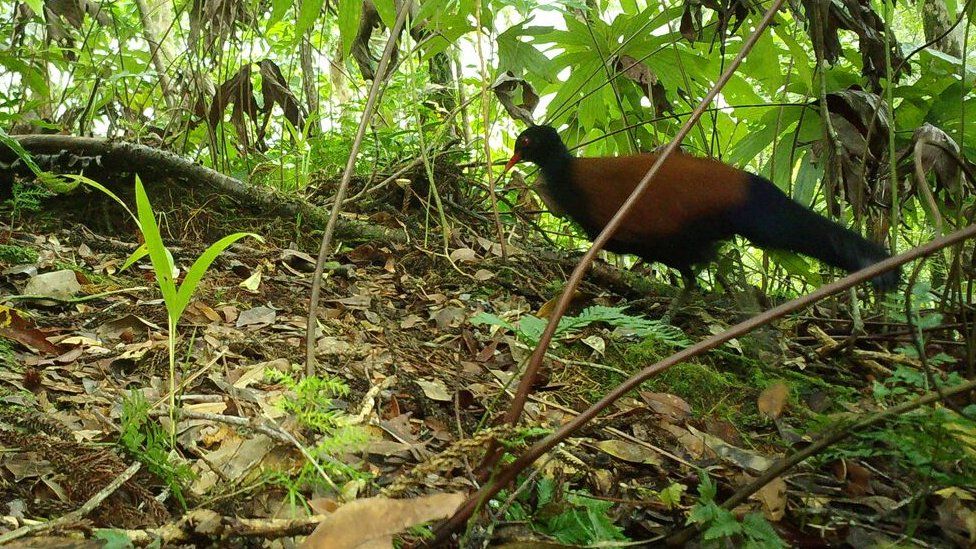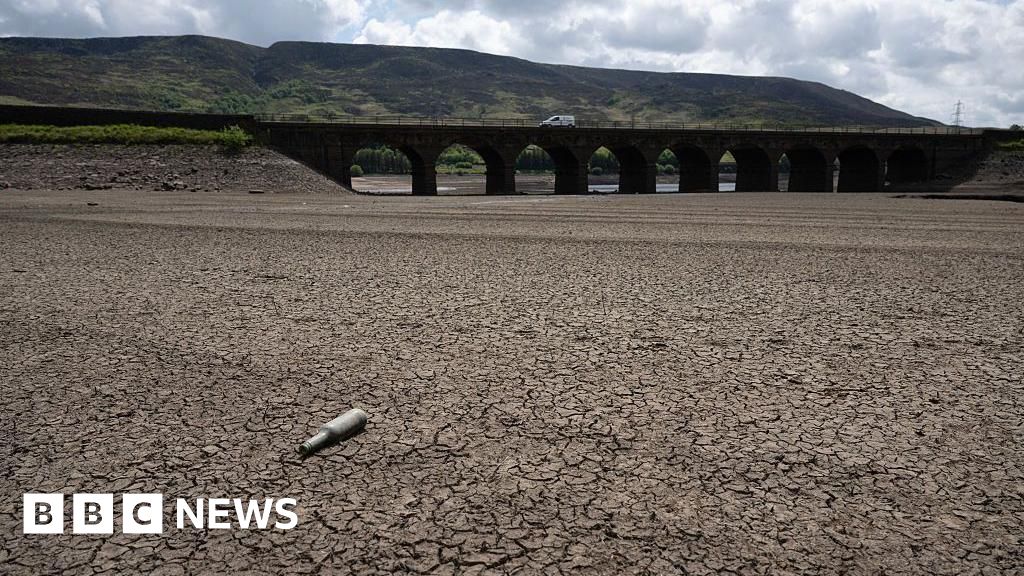ARTICLE AD BOX
 Image source, American Bird Conservancy
Image source, American Bird Conservancy
The bird hadn't been sighted since 1882
By Tiffanie Turnbull
BBC News, Sydney
Some 140 years after the black-naped pheasant-pigeon was last sighted by scientists, researchers have "rediscovered" the rare bird.
After a month of searching, a team in September captured footage of the species deep in the forest of a tiny island off Papua New Guinea.
It was a mammoth effort that involved countless interviews with locals, 20 camera traps and a run-in with pirates.
Researchers hope the discovery will help save the species from extinction.
Members of the team had attempted to find the large, ground-dwelling pigeon before. Three searched Fergusson Island - its only habitat - in 2019 but didn't find any trace of the bird.
The 2022 expedition appeared to be going similarly, until the team reached villages on the western slope of Mount Kilkerran - the island's highest peak.
"[There] we started meeting hunters who had seen and heard the pheasant-pigeon," said conservation biologist and expedition co-lead Jason Gregg.
One local in particular offered a promising lead. He reported seeing the pheasant-pigeon several times in an area with steep ridges and valleys and described hearing the bird's distinctive calls.
The researchers set up cameras in the area and eventually captured the bird just days before the team was due to leave the island.
"As I was scrolling through the photos, I was stunned by this photo of this bird walking right past our camera," Cornell University researcher Jordan Boersma said.
The images they captured are the first time the long-lost bird has been documented by scientists since 1882.
"[It] felt like finding a unicorn," expedition co-lead John Mittermeier said.
"It is the kind of moment you dream about your entire life as a conservationist and birdwatcher."
Very little is known about the species but scientists believe that the population on Fergusson Island is very small and decreasing.
But the team hopes the information they have gathered can be used to help protect the birds that remain.
On their way back from Fergusson to Normanby the researchers' boat also had to outrun pirates, which are common in the area, a spokesperson for the Rewild project said.

 2 years ago
64
2 years ago
64









 English (US) ·
English (US) ·